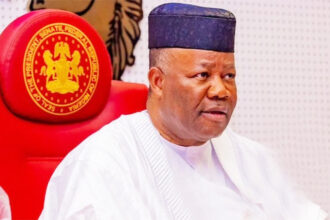The Federal Government has abolished the 18-year age limit for university admissions in a move that could reshape the nation’s higher education landscape.
The Federal Government has officially scrapped the 18-year age requirement for university admissions in Nigeria.
This announcement was made by the new Minister of Education, Dr. Tunji Alausa, during his inaugural press conference in Abuja on Wednesday.
ATTENTION: Click “HERE” to join our WhatsApp group and receive News updates directly on your WhatsApp!
According to Alausa, the decision is part of broader reforms aimed at making the country’s education system more inclusive and accessible to a wider range of students.
While Dr. Alausa did not elaborate on all the details of the new policy, he confirmed that there would be no age restrictions for prospective students applying to tertiary institutions across the country.
“We believe that education should be accessible to everyone, regardless of age. This policy change will open up opportunities for a broader spectrum of Nigerians to pursue higher education,” Alausa stated at the press conference.
The minister, however, emphasized that this move would not reverse the federal government’s decision to annul over 22,700 degree certificates obtained from what he described as “fake” universities in neighboring Togo and Benin Republic.
In a stern statement, he reassured Nigerians that the revocation of these degrees would stand.
“It is important that our graduates obtain credentials from accredited and legitimate institutions. We will continue to act decisively against any institution or individual found to be involved in fraudulent academic practices,” Alausa added.
READ ALSO: FG Terminates Julius Berger’s Abuja-Kaduna Road Contract Over Non-Performance
This policy change is likely to have significant implications for the nation’s education system, especially for adult learners who had been previously excluded from applying for university admission based on age.
However, it also raises questions about the long-term effects on the quality of education and the overall admission process.
As the minister hinted at more reforms in the education sector, Nigerians are waiting to see how this and other potential changes will affect the future of higher education in the country.


